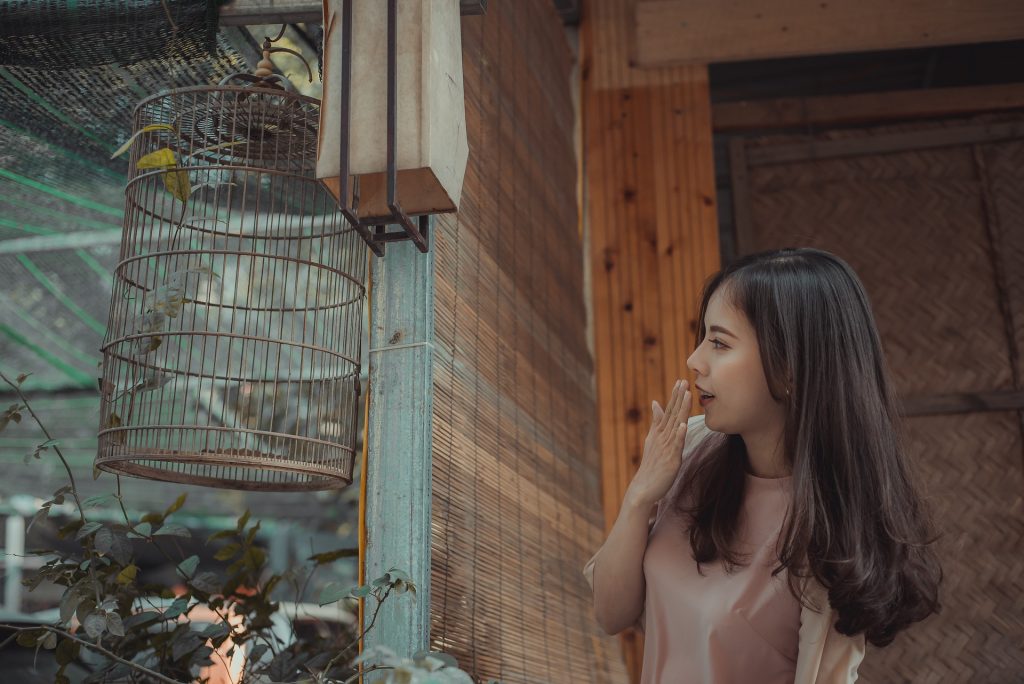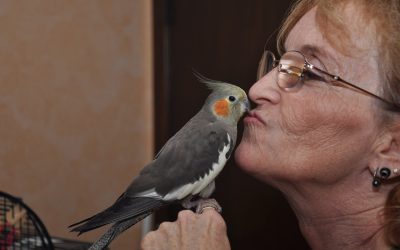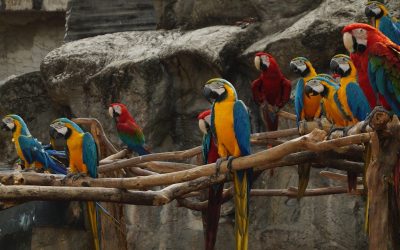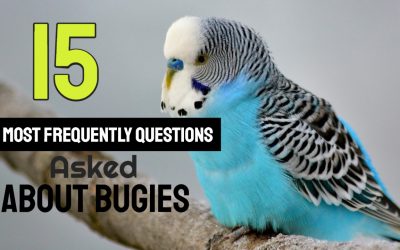
Are Round Cages Bad for Birds? The answer to this questions is that round cages are not good for most bird species for many reasons. Most important round cages are risky for the inhabitant. Any bird in a round cage could easily get a toe, beak, tail, or entire foot or ankle caught in the little space where the bars gather at the top of the cage. This is a very real dangerous and you don’t need other reason to reject this type of cage. But there are more reasons than just this danger of the V-shaped construction at the top.
Poor Construction
Most round cages on the market have poor welding and are cheap in their construction. It is also very uncommon to find a stainless steel cage that is round in shape. Stainless steel is the way to go when purchasing a cage, and they are usually sturdy and of best quality. They last forever, they don’t rust, and they are safe for your birds. They can be easily maintain and clean and if you shop wisely, you can get a design that pleases both you and your bird. Stainless steel is an extremely neutral material that pretty much goes with any color schemes or decor you might have in your home.
They Aren’t Easy to Clean
Round cages are difficult to clean. Try and get a cleaning cloth into those tight spaces between the bars at the top of the cage. Dust, food particles, and other waste matters can get trapped in those small spaces between the bars, and it isn’t sanitary for you or your bird. Most square cages are made with a built-in slide-out grate as well as a slide-out substrate grate. Whereas round cages don’t come built this way. You normally have to pop the top of the cage off of the bottom grate and cage bottom to clean it, and it is inconvenient and messy.
They Aren’t Recommended by the Industry
Some people think that round cages are harmful to a parrot’s psychological health. The thinking is that birds are very smart creatures, and some birds have driven themselves crazy climbing around and around cylindrical cages, and feeling like they are never getting anywhere. They believe that giving a bird an angular cage provides them with reference points to different locations in their territories—thus helping them feel confident, safe, and secure. They also feel that the best set-up for a cage includes a wall behind the cage so that the bird knows nothing is approaching him from behind. This provides security, safety, and privacy on one side of the cage.
They Are Awkward for Companion Birds
One more reason to avoid round cages is that they are often awkward living spaces for a bird to inhabit. The shape causes a bird’s feathers to be in constant contact with the cage bars, wearing them down and giving the bird a ragged appearance. Most round cages available are not very huge, and with pet birds always bigger cages are the best. There are octagonal outdoor aviaries in places, but you rarely see round outdoor enclosures.
Accessories Aren’t Designed to Fit Them
Round cages can be difficult to manage, there is another reason to avoid them. Because most bird cages are now in square and rectangular form, it can be hard to find specific accessories that will match round cages. Cuttlebones on metal clips, millet spray clips, removable food bowl holders, and some toys with double clips are made to fit in square or rectangular cages where the bars are equidistant to each other for the entire length of the bar. A square cage gives you more options to manage your cage with perches, toys, platforms, bowls, and all of the other accessories you can get to keep your parrot busy and occupied. These accessories and toys are major part need of your pet bird.
For above reasons, it may be easier for both you and your pet to opt for a square or rectangular cage. By doing so, you can provide your companion bird with a comfortable home and provide yourself with a cage that is easy to keep clean and provided with with fun accessories your bird loves and requires to keep her happy.
See Also:Bird Cage Sizes and Bar Spacing
Everything you need to now about cockatiel diet
The health and vitality of your Cockatiel depends entirely on the right kind of diet.The perfect diet not only means the right amount but also the right combination ofthe essential nutrients required by your Cockatiel. We need to be even morecareful about the...
13 Fun Facts About Macaws | Bird and Beyond
1. Macaws Can Live More Than 80 YearsMacaws live to be around 60 years in the wild on average, and in some cases this can extend for up to 80 years and even as long as 100 years. When kept as pets, macaws are often known for outliving their owners! In the wild, their...
15 Most Frequently Asked Questions about Budgies
15Frequently Asked Questions.Here are some most common questions about bugies. When people refer to an "English" budgie they are generally talking about a budgie that is significantly bigger than the wild Australian budgerigar and with characteristics and features...




Recent Comments